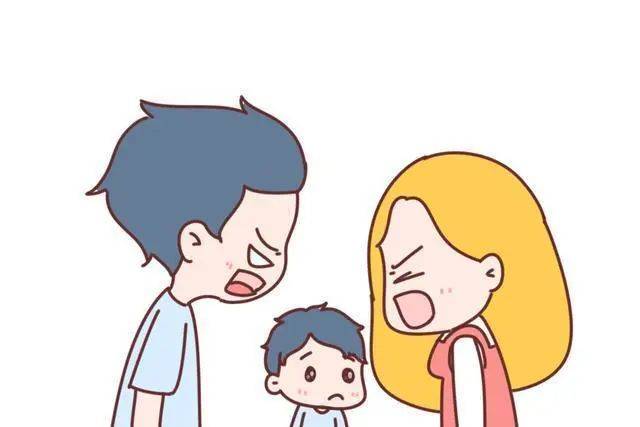“Doctor, how did my child end up in depression?” This is one of the most common questions heard in hospitals.
Because they think: compared to themselves born in the 70s and the 80s, today’s children are materially well-off and carefree.
Not only do they not need to worry about basic living needs, but they also don’t have to shoulder family responsibilities early on, just focus on studying.
So why do better material conditions lead to a much higher incidence of depression nowadays?
★ What are the underlying reasons behind this?
High incidence of depression in adolescents
1. Family Factors
An unfavorable family atmosphere or a broken family structure can create stress on a child’s young mind, leading to emotional wounds. Endless arguments, parental divorce or death, long separations from parents can cause lasting harm to children.
If children are not promptly guided, they may even think that these arguments or tragedies are their fault, believing that they are not good enough, leading to depressive conditions.
2. Experience of Major Traumas
Children who have experienced major life changes or accidents are prone to depression. Because children’s minds and bodies lack psychological coping mechanisms, experiencing intense stimuli can cast a huge shadow on their inner selves.
3. External Environmental Factors
If children are exposed to discrimination, abuse, school violence, or domestic violence for a long time, they may exhibit strong depressive symptoms.
Or if parents have overly high expectations and discipline, exceeding the child’s capabilities, it can cause immense psychological pressure on the child, ultimately leading to an inability to cope with excessive mental stress, resulting in despondency and low mood.
Manifestations of Adolescent Depression
1. Defiance Towards Parents
Constantly challenging parents, unjustly angering at them, insulting them, easily getting angry over trivial matters, with severe cases involving staying out all night, smashing objects, loss of appetite, or even skipping school.
When children feel extremely helpless or disconnected from themselves, outbursts of anger often indicate psychological instability.
The anger displayed at this time reflects the tantrums of an unsatisfied infant.
2. Self-Isolation
Locking themselves indoors after school and on weekends, avoiding interaction with classmates, lack of friends in their life, sometimes skipping meals, finding parents annoying when knocking on the door, almost no communication at home, rarely responding to parents’ questions, sometimes sleeping through the whole day.
3. Prolonged Negative Emotions
Frequently displaying negative and self-deprecating emotions, expressing disappointment in life, self-disgust. For example, saying they are worthless, exhibiting extreme self-doubt towards exams and high school, occasionally complaining to parents about their own deficiencies, blaming parents, saying negative and pessimistic things.
4. Decline in Performance
A child who used to excel suddenly experiences a significant downturn in performance recently, losing interest in studies is not due to academic issues, but rather substantial psychological issues in the child, which parents should take seriously.
5. Unusual Physical Symptoms
The child may exhibit physical discomfort, dizziness, chest tightness, nausea, limb weakness, weight loss, excessive sleep or insomnia. If these symptoms are not detected as physical illnesses through medical examinations, it is more likely to be a result of psychological illness, most likely depression. Parents should pay attention to this; if this occurs, many parents may mistakenly believe it’s due to their child’s poor physical health and thinking they need more exercise, which is entirely wrong.
6. Blank Facial Expressions
The child’s eyes lack vitality, showing fewer facial expressions, minimal body movements.
7. Self-Harm Tendencies
Getting furious over trivial matters, throwing things, self-harm behavior is not just a child’s personality or temper issue, parents should be aware that once the child starts self-harming, the first thing to do is not to blame the child; instead, take the time to calmly inquire about the reasons behind it.
Parents need to understand that if a child shows serious self-harm tendencies, there must be a psychological problem! Parents should give it adequate attention and offer timely assistance upon noticing abnormal emotional behaviors in their child.
If these negative emotions are not promptly addressed and resolved, they may lead to anxiety, depression, and other psychological problems.
Therefore, each parent, teacher, and member of society should pay attention to the psychological well-being of children, identify changes in their emotions promptly, and provide them with enough care and support.
If your child at home exhibits feelings of depression, anxiety, or such emotions, you can schedule an appointment for face-to-face counseling with experts, who will offer you professional guidance and treatment.


